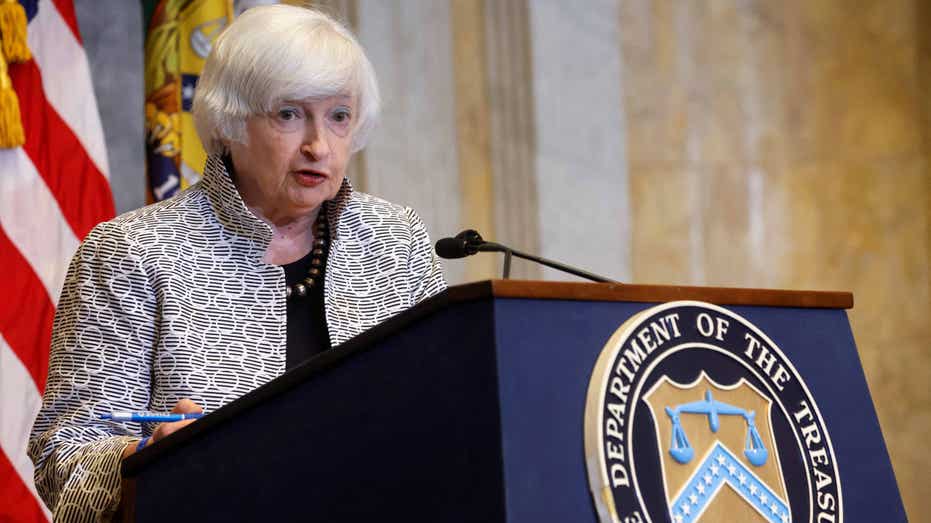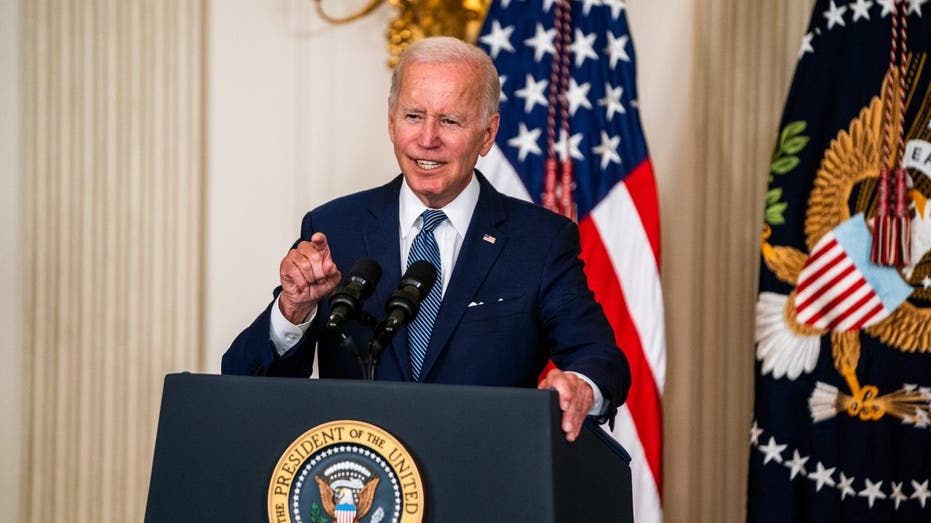Yellen says inflation remains Biden's No. 1 priority as Democrats face election onslaught
Inflation is embedded ‘and in a very big way’: Gary Kaltbaum
Gary Kaltbaum of Kaltbaum Capital Management on multiple CEOs raising alarms on the economy and Janet Yellen’s comments on inflation on ‘Cavuto: Coast to Coast.’
Fighting record-high inflation remains a top priority for the Biden administration, Treasury Secretary Janet Yellen said on Monday, addressing a growing concern about the state of the U.S. economy ahead of the pivotal midterm elections.
"Let me be very clear: inflation in the United States remains far too high," Yellen said during prepared remarks at the Securities Industry and Financial Markets Association's annual meeting. "Our Administration’s top economic priority is to rein it in. We recognize that the Federal Reserve bears the primary responsibility, but we are taking a broad range of complementary actions to lower costs."
Her comments come just two weeks before the midterms, in which Democrats are widely expected to lose their razor-thin majority in the House and possibly the Senate too as a result of painfully high inflation.
Inflation, and the broader economy, remain the top issues for a majority of voters, according to a recent New York Times/Siena College poll. A separate poll from CNBC showed that most registered voters (42%) think that Republicans will be more successful in getting inflation under control than Democrats (27%).
SOCIAL SECURITY RECIPIENTS TO SEE BIGGEST COLA INCREASE SINCE 1981
Janet Yellen, pictured here holding a news conference in the Cash Room at the U.S. Treasury Department in Washington, U.S. July 28, 2022. (REUTERS/Jonathan Ernst / Reuters Photos) The White House has been accused of grossly misjudging the inflation problem, with President Biden and other top officials insisting that high inflation was "transitory," – a byproduct of COVID-induced disruptions in the global economy – even when it became clear the spike would last longer than expected. In recent weeks, the White House has dispatched Yellen to sell Biden's economic agenda and tout the post-pandemic recovery, despite soaring inflation. On Monday, she stressed that despite "serious global headwinds" – including the Russian war in Ukraine, rising energy prices and lingering effects from the pandemic – the U.S. economy retains "significant strength." "Our economic plan will bolster our resilience to global shocks," she said. US President Joe Biden delivers remarks before signing into law H.R. 5376, the Inflation Reduction Act of 2022 (climate change and health care bill) in the State Dining Room of the White House on Tuesday, August 16, 2022. (Photo by Demetrius Freeman/The Washington Post via Getty Images / Getty Images) US RECESSION ODDS RISE TO 100% AS INFLATION SQUEEZES THE ECONOMY The Labor Department reported earlier this month that inflation rose 0.4% in September from the previous month and 8.2% on an annual basis. Those figures were both higher than the 8.1% headline figure and 0.2% monthly increase forecast by Refinitiv economists, a worrisome sign for the Federal Reserve as it seeks to cool price gains and tame consumer demand with an aggressive interest rate hike campaign. CLICK HERE TO GET THE FOX BUSINESS APP In an even more troubling development that suggests underlying inflationary pressures in the economy remain strong, core prices – which strip out the more volatile measurements of food and energy – climbed 0.6% in September from the previous month. From the same time last year, core prices jumped 6.6%, the fastest since 1982. A customer shops at a supermarket in Millbrae, California, the United States, Aug. 10, 2022. ((Photo by Li Jianguo/Xinhua via Getty Images) / Getty Images) CLICK HERE TO READ MORE ON FOX BUSINESS The data all but ensured that the U.S. central bank will approve another 75-basis-point interest rate hike – the fourth of its kind – when it next meets Nov. 1-2. Rising interest rates threaten to trigger an economic recession by forcing businesses, and ultimately consumers, to pull back on spending. Source: Read Full Article



